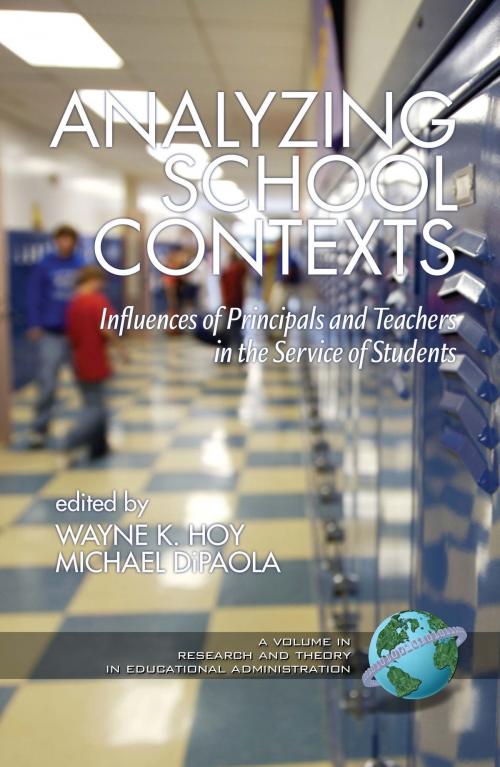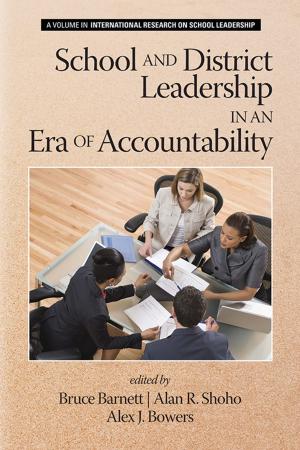Analyzing School Contexts
Influences of Principals and Teachers in the Service of Students
Nonfiction, Reference & Language, Education & Teaching, Higher Education, Administration| Author: | ISBN: | 9781617350160 | |
| Publisher: | Information Age Publishing | Publication: | May 1, 2010 |
| Imprint: | Information Age Publishing | Language: | English |
| Author: | |
| ISBN: | 9781617350160 |
| Publisher: | Information Age Publishing |
| Publication: | May 1, 2010 |
| Imprint: | Information Age Publishing |
| Language: | English |
Analyzing School Contexts is the ninth volume in a series of research and theory in school administration dedicated to advancing our understanding of schools through empirical study and theoretical analysis. The current selection of readings is loosely organized around the broad topics of school contexts, leadership, and organizational properties that influence the effectiveness of schools. The book begins with a reflective analysis of the importance of organizational theories and theorizing in educational in administration and then proceeds to examine research on how leaders, especially principals, can strengthen the instructional and academic capacity of the school to enhance teachers’ effectiveness in producing strong student outcomes. The analyses deal not only with what instructional leadership practices make positive differences in teaching and learning, but also with how district leadership is pivotal in developing school partnerships with business and how district mentoring programs to develop future school leaders succeed. Finally, we examine school climate, academic optimism of teachers, organizational trust, and the constraints and opportunities that the law provides to develop and maintain a respectful school environment conducive to learning.
Analyzing School Contexts is the ninth volume in a series of research and theory in school administration dedicated to advancing our understanding of schools through empirical study and theoretical analysis. The current selection of readings is loosely organized around the broad topics of school contexts, leadership, and organizational properties that influence the effectiveness of schools. The book begins with a reflective analysis of the importance of organizational theories and theorizing in educational in administration and then proceeds to examine research on how leaders, especially principals, can strengthen the instructional and academic capacity of the school to enhance teachers’ effectiveness in producing strong student outcomes. The analyses deal not only with what instructional leadership practices make positive differences in teaching and learning, but also with how district leadership is pivotal in developing school partnerships with business and how district mentoring programs to develop future school leaders succeed. Finally, we examine school climate, academic optimism of teachers, organizational trust, and the constraints and opportunities that the law provides to develop and maintain a respectful school environment conducive to learning.















